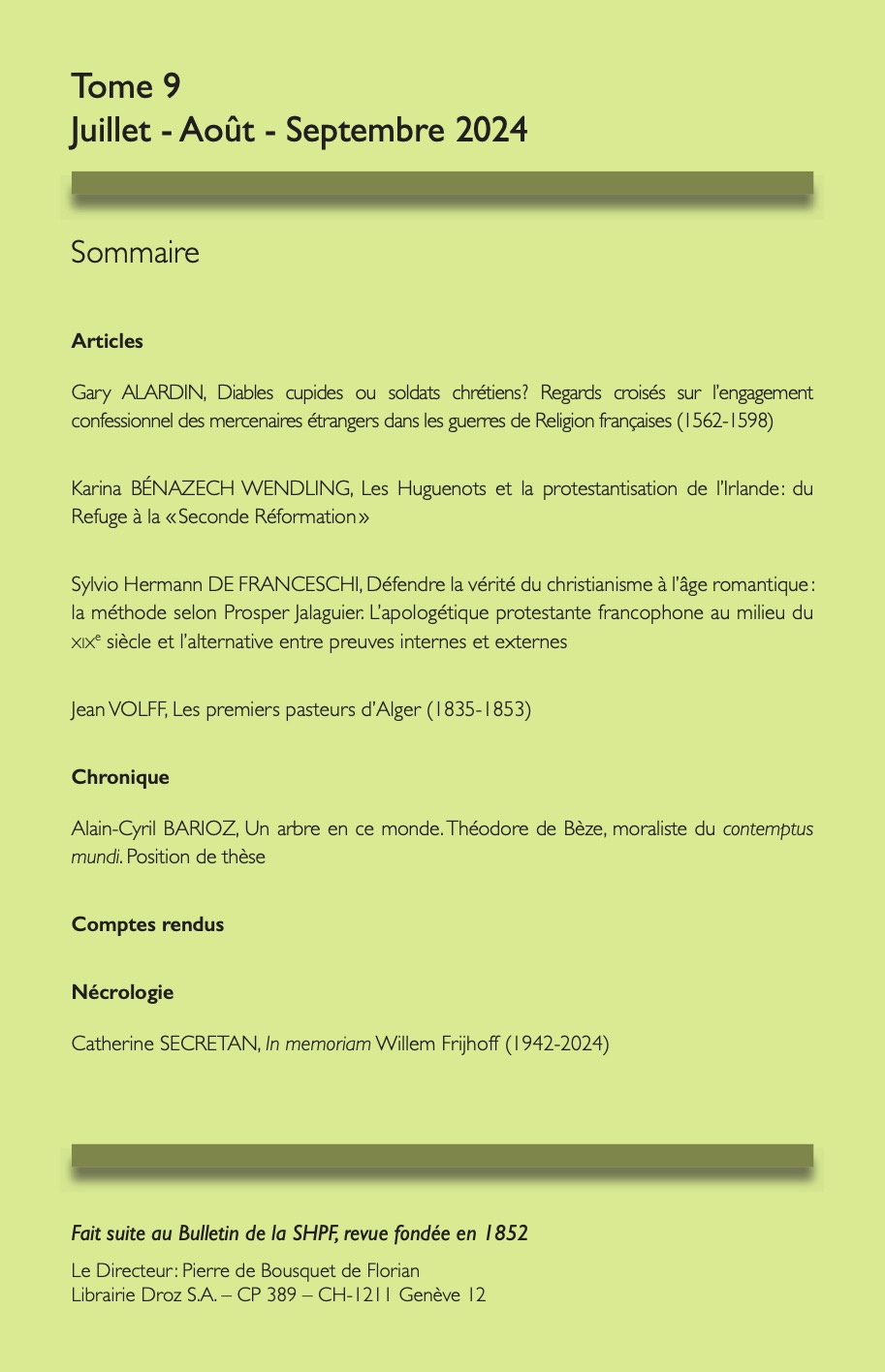Un arbre en ce monde. Théodore de Bèze, moraliste du contemptus mundi
Position de thèse
Abstract
Based on the notion of detachment and renunciation, the clerical and monastic themes of contemptus mundi denounced wealth, the flesh, and glory as obstacles in the pursuit of God. However, they needed to be renewed owing to their humanist reception while the Reformation, for its part, needed a doctrine of contempt of the world of its own. Yet the way this topic was transformed by Theodore Beza in the sixteenth century so as to become a major theme for Protestant Reformers has not yet received the attention it deserves. It is, however, an important way of understanding their “imaginary” (“l’imaginaire”) with the historical methodologies of mentality, cultural anthropology, and reception theory. Using the literary genres available to him, Beza promoted a reconfiguration of the notion of contemptus mundi based on the medieval and classical traditions. His itinerary began in Orleans and Paris in the context of humanistic Latin poetry and the rising evangelical faith, as well in the upheavals caused by the persecutions. His conversion to Calvinism in 1548 led to his exile. The reformulation of the contemptus mundi on the basis of Beza’s favourite themes like conversion, the norms and discipline of the church, confessions of faith, sanctification, eschatology, and reflection on death and on the vanity of this world “below” played out in the broader diffusion of this theme through new genres and media. Beza had a far-reaching role in the adoption of a personal ethical conception, and an upright Christian attitude to adopt in the face of the theatre of a changing world. This refashioned concept of contempt of the world became more broadly constitutive of the Calvinist influence in Europe.
How to Cite
More Citation Formats

